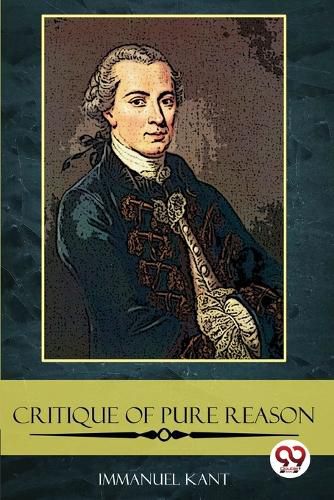Readings Newsletter
Become a Readings Member to make your shopping experience even easier.
Sign in or sign up for free!
You’re not far away from qualifying for FREE standard shipping within Australia
You’ve qualified for FREE standard shipping within Australia
The cart is loading…






This title is printed to order. This book may have been self-published. If so, we cannot guarantee the quality of the content. In the main most books will have gone through the editing process however some may not. We therefore suggest that you be aware of this before ordering this book. If in doubt check either the author or publisher’s details as we are unable to accept any returns unless they are faulty. Please contact us if you have any questions.
The foundational work of modern philosophy is Kant's The Critique of Pure Reason, published in 1781. It offers a thorough and challenging inquiry into the characteristics of human reason, including its knowledge and illusions. Kant contends that while reason is the source of some conceptions that precede experience and enable it, we are not permitted to infer anything about the natural world from these notions. The Critique brings together the two conflicting philosophical systems of rationalism and empiricism, which trace all of our knowledge back to experience and reason. The transcendental idealism of Kant suggests a third option that goes well beyond these two. Between "analytic" and "synthetic" judgments, Kant makes a distinction. Simply by analyzing the components that make up an analytical judgment, one may determine if it is true. Synthetic judgments don't actually contribute anything to a notion; they only describe what the idea already has.The Critique first drew little attention, but as time passed, it came under attack from both empiricist and rationalist critics, sparking debate. The work is seen as making a significant contribution to modern philosophical thinking.
$9.00 standard shipping within Australia
FREE standard shipping within Australia for orders over $100.00
Express & International shipping calculated at checkout
This title is printed to order. This book may have been self-published. If so, we cannot guarantee the quality of the content. In the main most books will have gone through the editing process however some may not. We therefore suggest that you be aware of this before ordering this book. If in doubt check either the author or publisher’s details as we are unable to accept any returns unless they are faulty. Please contact us if you have any questions.
The foundational work of modern philosophy is Kant's The Critique of Pure Reason, published in 1781. It offers a thorough and challenging inquiry into the characteristics of human reason, including its knowledge and illusions. Kant contends that while reason is the source of some conceptions that precede experience and enable it, we are not permitted to infer anything about the natural world from these notions. The Critique brings together the two conflicting philosophical systems of rationalism and empiricism, which trace all of our knowledge back to experience and reason. The transcendental idealism of Kant suggests a third option that goes well beyond these two. Between "analytic" and "synthetic" judgments, Kant makes a distinction. Simply by analyzing the components that make up an analytical judgment, one may determine if it is true. Synthetic judgments don't actually contribute anything to a notion; they only describe what the idea already has.The Critique first drew little attention, but as time passed, it came under attack from both empiricist and rationalist critics, sparking debate. The work is seen as making a significant contribution to modern philosophical thinking.